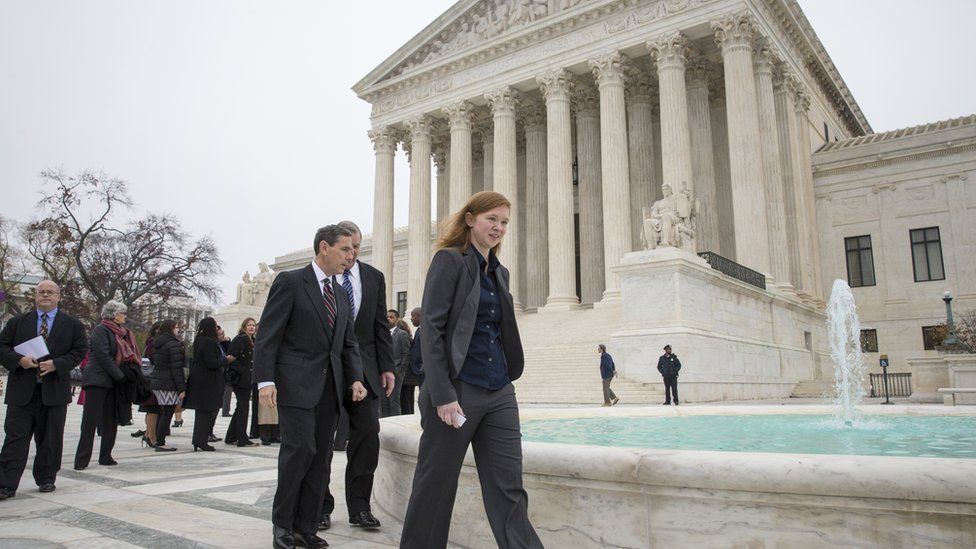#StayMadAbby: How black graduates responded to a key Supreme Court case
- Published

"I earned this."
That was just one response written by black college students and graduates to a key case heard by the US Supreme Court this week. The messages are tagged with with the hashtag #StayMadAbby - and the case will determine whether American universities can continue to take race into account when deciding which students to accept.
"Abby" is the woman who originally brought the case - Abigail Fisher, a white woman from Texas who sued the prestigious University of Texas at Austin when she was denied admission in 2008.
Most students at the university gain admission through a scheme that automatically admits Texans who graduate in the top 10% of their high school class. But about a quarter of students are chosen based on considerations other than grades - and one of the many factors taken into account is race.
Fisher was not in the top 10% of her high school class, and sued claiming discrimination when she wasn't admitted on the basis of those other factors. She argues that taking the top 10% of each high school brings in enough minority students without making race a factor for additional admission and that the university can diversify its student body without specifically using racial considerations.
The University of Texas policy has been upheld by a number of courts - and in fact the case has been heard before by the US Supreme Court in 2013, when it was sent down to a lower court for further consideration. But it ended up in front of America's highest court for oral arguments again on Wednesday. Many took issue with Justice Antonin Scalia's suggestion that black students would do better at "slower-track schools" rather than a school like the University of Texas at Austin. He said some black students are "being pushed ahead in classes that are too fast for them."
One of the many black students tweeting #StayMadAbby was Patrick Sutton, a 2014 Vanderbilt University graduate who is now in a post-graduate program at Tulane University.
"The point of the hashtag is to celebrate black excellence," Sutton told BBC Trending. "[It's] an attempt to show African-Americans are achieving great things in academic settings."
Why StayMad? "It is like saying, 'We know you're mad and upset with our success or current situation but we're letting you know it's not going to change anytime soon," Sutton says. "We are not phased by her disgruntled attitude or other people's negative thoughts and actions."
The hashtag has been used more than 70,000 times and many of the photos featured black women and men showing off their diplomas, talking about their academic performance and pointing out what they see as flaws in Fisher's argument.
Many of the most popular messages used sarcasm and humour to get their point across, and Sutton says using humour is key. "When things are funny, it's easier to get people to listen to you," he says.
Blog by Ashley Gold
"Yes. A Muslim man blew me up, and I lost my leg." That's how Chris Herbert began his "angry rant" on Facebook.READ MORE
You can follow BBC Trending on Twitter @BBCtrending, and find us on Facebook. All our stories are at bbc.com/trending.